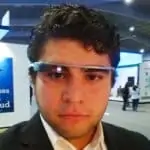HTC used to be the largest and most popular smartphone manufacturer in the whole world, completely dominating the (at the time) emerging market, in which Apple and Samsung were still trying to gain a good position in the industry. HTC was founded on May 1997, in Taiwan, and since then it has remained in a relatively stable upward slope; HTC’s expansion continued until not so long ago, when the company failed to deliver an innovative flagship device able to compete with those of Samsung or LG. This was quickly followed by a drastic drop in overall sales, guiding the popular OEM, a lot closer to its demise. HTC was once the leader in both market share and handset shipments, but after years of bad decisions and lack of innovative devices, the company’s top position was stripped by both Apple and Samsung. Unfortunately, the Taiwanese-based company is now getting closer to a collapse; one which could lead HTC to its complete demise, marking the end of one of the world’s most iconic and influential smartphone manufacturers.
HTC –with the HTC Dream– was one of the first companies that adopted Google’s own mobile operating system, Android; which helped the company to greatly expand and gain an advantageous position in the rising smartphone market. HTC also took advantage of partnering with all the four major carriers in the nation, giving their users discounts and promotions to boost their own sales. Another key factor in HTC’s previous success, was the fact that the company was one of the first OEMs that offered 4G connectivity with its devices, such as the HTC ThunderBolt, which was released in 2011. HTC later released the Evo 4G, which shook the market as it was the first device to support Sprint’s competing 4G standard, WiMAX. To put this in contrast, while HTC gained a great position when it came to 4G connectivity in early 2011, it wasn’t until 2013 that an LTE-enabled iPhone was available in the four major carriers of the nation. When the third quarter of 2011 came, HTC was reported to be the top smartphone manufacturer in the United States, which meant that the company was responsible for almost one-quarter of the whole smartphone market, with over 5.7 million units shipped and sold. HTC’s dominance of the market led to investors upping the price of shares; finalizing with a market cap around $34 billion in April, 2011.
But the great success that HTC was having, ended up being just the results of some previous innovations and great business decisions, as while the other Manufacturers began to up their game in order to meet the high standards that HTC created; all manufacturers except HTC itself. The once world’s smartphone OEM leader heavily relied on past successes to carry the company forward, instead of focusing on what the market was evolving into and further innovate. In November, 2012, the total value of HTC’s shares dropped by almost 80 percent, which led the company to try a completely new approach to the market. HTC cut the number of devices it offered and focused primarily on one premium flagship; in early 2013, the HTC One M7 was born. This new flagship was at first praised by the whole Android community, but after the initial hype, its sales began to drop and failed to gain new customers. The next two major flagship devices that HTC launched were the HTC One M8 and One M9, successors to the somewhat successful HTC One M7. But instead of opting to add some daring features to these two devices, the company decided to play it safe and only make incremental improvements, without changing any key characteristics of the HTC One lineup.
Just a few weeks ago, HTC was reported to hit an all-time low, with the company’s market cap at around $1.2 billion, which is less than HTC’s actual cash on hand. Without any clear strategy, HTC will surely continue to plummet until it hits an irreversible position, a point were HTC’s demise will be inevitable. If the company doesn’t drastically change its overall strategy, this point will without a doubt come in a near future, marking the end of one of the world’s most iconic smartphone manufacturers. Today, HTC serves as a great example of what could happen if a company puts a halt in innovation and begins to play it safe, avoiding any risks with its new products. In an industry as competitive as the smartphone market; every major shift is driven by new inventions, which means that a company can’t stay in its comfort zone without any negative repercussions. Doing the same thing that might have once proven to be successful, will not lead to continuous success in an ever-changing market.

